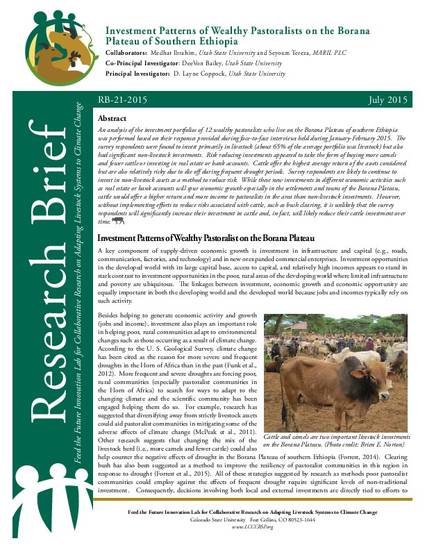
An analysis of the investment portfolios of 12 wealthy pastoralists who live on the Borana Plateau of southern Ethiopia was performed based on their responses provided during face-to-face interviews held during January-February 2015. The survey respondents were found to invest primarily in livestock (about 65% of the average portfolio was livestock) but also had significant non-livestock investments. Risk reducing investments appeared to take the form of buying more camels and fewer cattle or investing in real estate or bank accounts. Cattle offer the highest average return of the assets considered but are also relatively risky due to die off during frequent drought periods. Survey respondents are likely to continue to invest in non-livestock assets as a method to reduce risk. While these new investments in different economic activities such as real estate or bank accounts will spur economic growth especially in the settlements and towns of the Borana Plateau, cattle would offer a higher return and more income to pastoralists in the area than non-livestock investments. However, without implementing efforts to reduce risks associated with cattle, such as bush clearing, it is unlikely that the survey respondents will significantly increase their investment in cattle and, in fact, will likely reduce their cattle investment over time.
